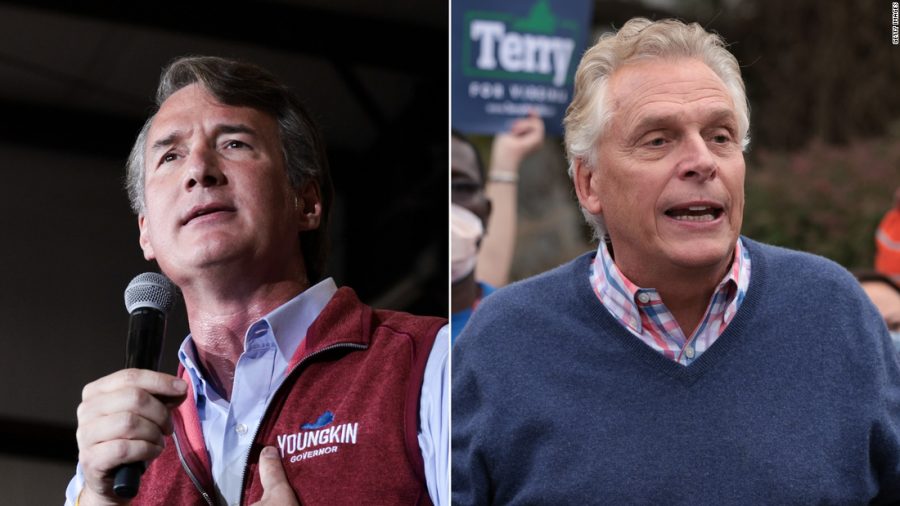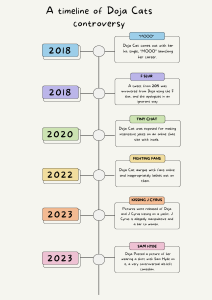What Virginia’s gubernatorial election says about national politics
November 4, 2021
Tuesday night marked an important win for congressional republicans and a major warning sign for congressional democrats: Glenn Youngkin, a former business tycoon and republican candidate for Virginia’s governorship, won the state by just over two points. No republican candidates had won a statewide election in Virginia since 2009.
Virginians headed to the polls en-masse on Tuesday, November 2nd to vote for the top three statewide offices in Virginia’s government: Governor, Lieutenant Governor, and Attorney General. Voting turnout was at its highest since 1997, largely thanks to a law signed by former Governor Ralph Northam (D) in April 2020 that gave voters 45 days to request absentee ballots without reason before election day.
Youngkin’s victory is a dramatic reversal from the most recent presidential election, where Joe Biden won the state by 10 points. Youngkin managed to flip suburban areas that Biden had won, largely because of his emphasis on traditional conservative education policy and by keeping former president Donald Trump at arm’s length. While Trump did endorse Youngkin, it was not a major campaign point for the republican candidate. But he also used right-wing tactics like lambasting critical race theory and law and order to fire up the white blue-collar voters that voted for Trump in 2016 and 2020.
President Biden and congressional democrats’ performances while in office are also likely a factor in the loss of democratic candidate Terry McAuliffe. McAuliffe, a former governor of Virginia who served from 2014 to 2018, struggled to separate himself from the slow-paced negotiations facing the White House’s Build Back Better agenda and Biden’s sinking approval rating.
However, democratic performance in Congress likely hurt McAuliffe more than it helped Youngkin. While McAuliffe tried to tie Youngkin to national issues like abortion and Trump, Youngkin focused more on local issues, most specifically education-based policies. In the final days of his campaign, Youngkin’s most supported measures focused on banning critical race theory, despite it not being in the K-12 curriculum of Virginia public schools. According to the Washington Post, “Youngkin regularly received his loudest applause when he promised to ban critical race theory, an academic approach to racial history that’s not actually part of the Virginia K-12 curriculum.”
The Virginia election was so closely watched for two main reasons: it shows what may come to pass in the 2022 midterm elections, and it provides the parties with how to run their campaigns. It gave republicans a roadmap for winning what they had previously lost in 2020, with Youngkin’s campaign managing to pull off what many political scientists deemed unlikely: a post-Trump GOP winning formula.
The Virginia election also gave democrats a warning about problems that have plagued the party for years. Candidates have struggled with energizing voters by themselves: in 2020, the high voter turnout was likely more because of the dislike of Donald Trump and not Biden himself. In order to hold onto their slim majorities in the House and Senate, the party of risk aversion will likely have to take some risks.









